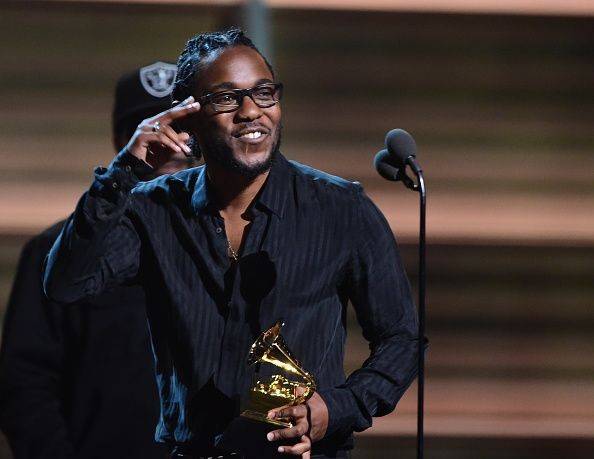Grammys 2016: This Year Could Be Kendrick Lamar, Compton And South LA’s Coronation, But It’s Been Long Building

UPDATE: 8:30 p.m. EST -- Kendrick Lamar's “To Pimp A Butterfly” won Best Rap Album at Monday night's Grammy Awards.
Original story:
LOS ANGELES — Compton, California, rapper Kendrick Lamar, who leads all artists with 11 nominations, is widely expected to end California’s curious 20-year drought in the Best Rap Album category when the 58th annual Grammy Awards airs Monday night. A trophy would punctuate what’s already been a banner year for Lamar, but his oft-maligned hometown deserves some love of its own.
It does seem appropriate that the year of Kendrick Lamar came when last year’s N.W.A. biopic “Straight Outta Compton” reminded the world just how much influence a small suburban city south of Los Angeles had on hip-hop. The movie’s critically acclaimed acting performances didn’t get any Oscar love for reasons that have been widely speculated about, but it was still a box office and popular success.
“Straight Outta Compton” told the story of N.W.A., the 1980-'90s rap supergroup featuring Ice Cube, Eazy-E, MC Ren, Yella and Dr. Dre, who is also nominated for Best Rap Album this year with his “Compton.” N.W.A. had a lasting influence on hip-hop music — and fashion, so much so that the group’s fondness for Los Angeles Raiders apparel was still allegedly a concern for NFL owners when the team, now in Oakland, unsuccessfully applied to move south last year.
The winners of that L.A. derby, the once and future Los Angeles Rams, are coming back to a privately funded stadium complex in the city of Inglewood, another south Los Angeles community not far from Compton with its own proud hip-hop legacy. The future Los Angeles Entertainment Center in Inglewood — which is likely to figure heavily in L.A.’s 2024 Olympic bid — is just a few miles down the road from the intersection of Crenshaw Boulevard and Martin Luther King Boulevard in south L.A., which was ravaged by the 1992 riots. But in late 2012, a crowd representative of all of Los Angeles lined up to watch the space shuttle Endeavour traverse the city en route to its final resting place at the California Science Center.
The Science Center is across the street from the University of Southern California, where Dre partnered with music executive Jimmy Iovine, his partner in high-end headphones manufacturer Beats Electronics — which Apple acquired for $3 billion in 2014 — to donate $70 million toward the formation of an arts and technology academy. Iovine told USC President C.L. Max Nikias that he wanted to design a school tailor-made to produce the next Steve Jobs, but with a net worth estimated at $700 million, being the next Dr. Dre wouldn’t be too bad.
None of this is to say that Compton, Inglewood and other south L.A. cities and communities have solved their problems with a great rap album, a fun movie, a new stadium and headphones. Those areas still haven’t recovered from the loss of manufacturing jobs, and are underserved by quality transit, food and lifestyle options. And while crime had declined across Los Angeles for 11 straight years, it ticked up last year.
We had a beautiful day in #Compton honoring @kendricklamar with the #Key2CPT! #HubLove #ComptonUP pic.twitter.com/Fx6fbW0tEp
— Aja Brown (@AjaLBrown) February 13, 2016
But on a night when the Staples Center in downtown Los Angeles is the center of the music world, a city a few miles south has the spotlight, thanks to a young rapper on top of his game — and a once-young rapper and producer who’s now a middle-aged tech entrepreneur, both of whom can’t help but name-drop their hometown. And now, that hometown is fully embracing its hip-hop legacy, which may be N.W.A.’s greatest accomplishment.
Dre is partnering with 33-year-old Compton Mayor Aja Brown, a former urban planner who upset the city’s longtime incumbent, on a new community center. And on Saturday, Brown gave its new favorite son, Lamar, the key to the city. So while Monday night might finally bring the city its long overdue golden phonograph, there's no way the music world could ever forget about Compton.
© Copyright IBTimes 2024. All rights reserved.





















